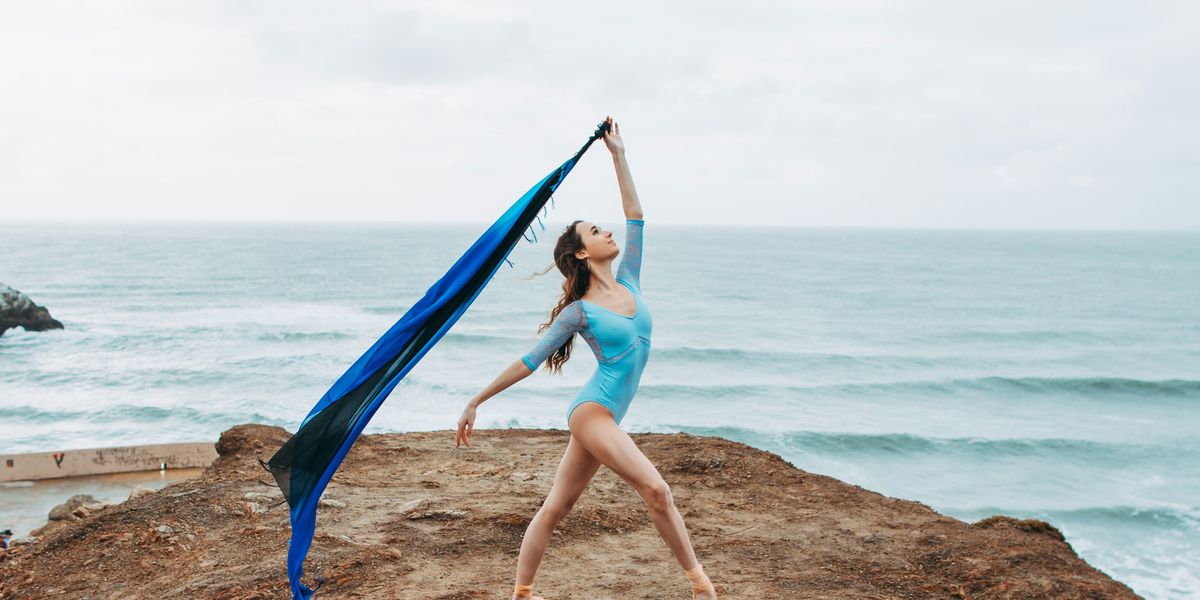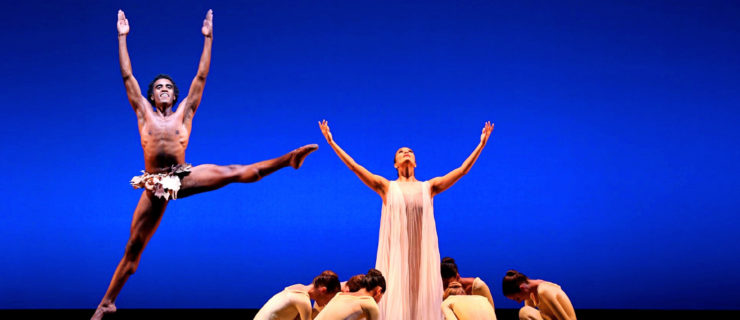How to Channel Your Competitiveness So It Helps—Not Hurts—Your Dancing
Ballet dancer Alina Taratorin has struggled to control her competitive nature for years. “When I was younger,” the 17-year-old Bayer Ballet Academy student says, “I would get so intimidated by the other dancers at competitions. If someone made a nasty face at me or did intimidating stretches, I would actually shake and fall onstage because of it.” Her desire to win was strong, but rather than channeling that desire in a productive way, she’d attack herself. “I tend to overanalyze everything,” she says. “I had to learn to control my own mind.”
These days, Alina uses an array of mental tricks to perform at her peak without getting psyched out by the competition. Are you struggling with overly competitive tendencies? Try these tips from the experts to bring balance to your dancing life.
Focus on YOU
Whenever you begin to fixate on out-performing the dancers around you, take a step back. “Remember why you’re dancing,” says Dr. Kate Hays, a performance psychologist based in Toronto. “What matters to you about dance? What do you love about it?” Articulating your strengths and your passions can help you stay calm and focused when a competition heats up.
If you’re having a hard time concentrating on yourself in key moments, Alina recommends putting on your metaphorical—and literal!—blinders. “Before competitions, I put my headphones in, stand facing the wall, and go over things by myself until it’s my turn to dance,” she says. Tuning out the competition can help you perform without fretting about what’s at stake.
Linda Holland, owner and artistic director of the Dance Institute in Austin, TX, points out that this self-focus starts in the classroom. “Take class for yourself,” she says. “You have things you’re working on—your feet, your extensions—that aren’t the same as what your peers are working on.” For big-picture goals, like competition titles or summer intensive slots, you can talk to your teachers to develop a personalized path. “Whatever the goal is, we can outline what you need to do to get there,” Holland says. “If everyone is on their own path, it’s not about competing with each other. It’s about putting in the work.”

Students from Dance Institute in Austin, TX, performing at competition (Evolve Photo and Video, courtesy Linda Holland)
Compare Without Criticism
One dancer’s arabesque is higher than yours. Another has better feet. Comparing yourself to your fellow dancers is unavoidable, especially when you spend hours every day surrounded by mirrors. “But what are you doing with the comparisons you’re making?” Hays asks. “Are you channeling those observations into your own growth?”
If seeing someone else’s epic balances inspires you to build your core strength, that’s a constructive use of competitive energy. If watching your peers succeed makes you cut yourself down—or if your instinct is to sabotage them, or to lash out so that they feel bad about themselves—that’s not so healthy.
Turn to people you trust to help you reset. “When I would get competitive over every little thing, my teachers would remind me that there is no perfect dancer out there,” Alina says. “Even the best professionals have qualities that aren’t ideal, but they learn to hide them or control them. Also, dance is a subjective artform. One director might not like how I move, but another person might love it. We don’t all have to be exactly alike.”

Alina Taratorin (photo by Oliver Endahl, courtesy Taratorin)
Take It One Day at a Time
Changing your thought processes—let alone any unproductive behaviors associated with those thoughts—likely won’t happen overnight. Be patient with yourself, and be willing to engage in some trial and error to determine what helps you most. Your goal is to feel as motivated as possible without crossing the line into harmful patterns.
Hays offers a strategy for learning to modulate your competitive spirit: “Do a self-rating from 0 to 100, where 0 is not at all competitive and 100 is absolutely cutthroat. Based on past experience, what is your optimal amount of competitiveness? Where are you now? If you’ve gone over your best number, how can you pull back?”
To decrease anxiety, she recommends diaphragmatic breathing, fully expanding the lungs and rib cage into the sides and the back. Visualization can also be useful. As an audition, competition, or other high-stress event draws near, picture how you want to present yourself and practice affirming your abilities. When the day arrives, you’ll have tools at the ready to keep your competitiveness in check.
Finally, remember that even if a result isn’t what you were hoping for, chances are it’s not the end of your dance journey. “There are always lessons you can take back into the studio,” Holland says. “You can always look ahead to what’s next.”




